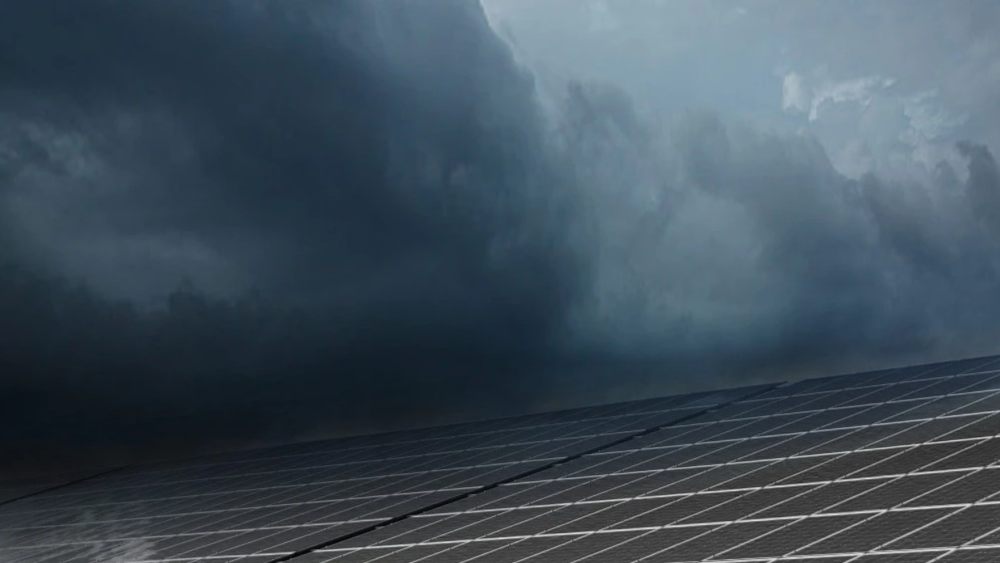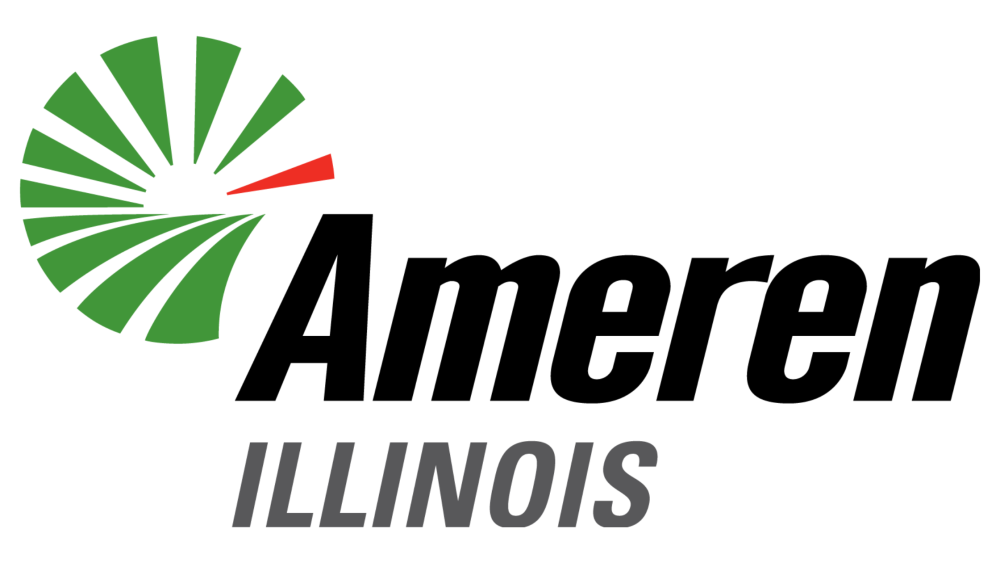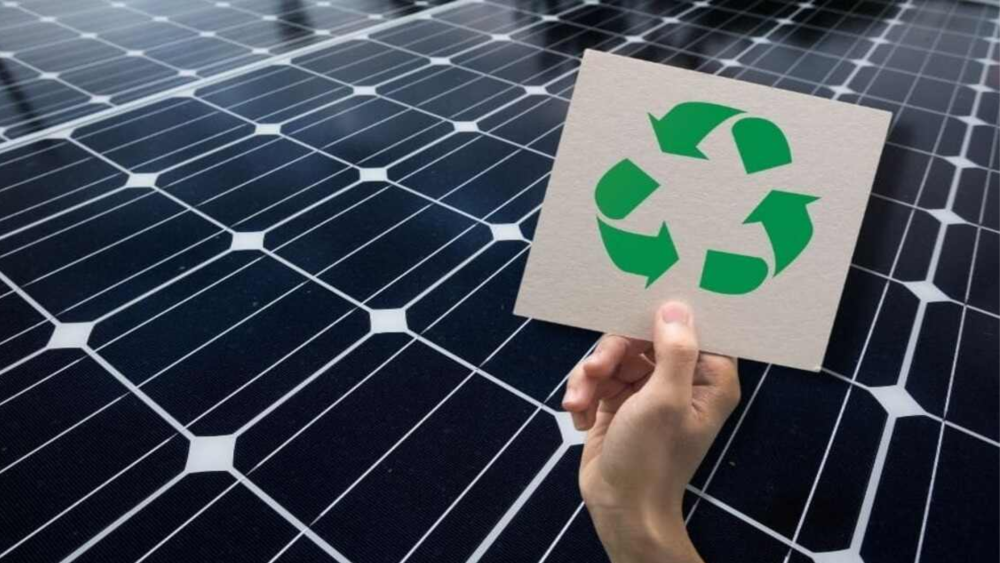Try our solar cost and savings calculator
What solar incentives are available in North Dakota?
As a homeowner in North Dakota, you have access to several different tax incentives that make solar panels more affordable. Solar incentives are available at both the federal and state levels to help you save thousands on your investment in solar energy.
Solar Calculator is here to help you take the next step in your transition to renewable energy. Below, we’ll discuss some of the different ways you can make solar more affordable.
Federal solar incentives
As part of the Inflation Reduction Act of 2022, congress passed several clean energy provisions to reduce energy costs. Among those provisions was an extension and upgrade of the Federal Investment Tax Credit (ITC).
Federal Investment Tax Credit
The Federal ITC allows you to claim 30% of your total equipment and installation costs on your federal taxes. There is no minimum or maximum amount you can claim and it includes equipment, installation, permitting, and even battery storage.
The ITC will remain at 30% until December 31, 2032. After that it will be reduced to 26% until December 31, 2033, then to 22% the following year. The ITC is currently set to disappear in 2035 unless it is renewed.
Who is eligible for the Federal ITC?
Most homeowners will qualify for the Federal ITC, but not all. You must meet the following criteria to claim your 30% tax credit:
The Federal ITC will also cover the following expenses:
Homeowners save around $10,000 on average with the Federal ITC. But that number can be higher or lower depending on your total expenses.
How to claim the Federal ITC
Claiming your Federal ITC couldn’t be easier. All you have to do is fill out IRS form 5695 and submit it with your tax return. You can consult with a tax professional for more assistance.
Local solar incentives
Who’s eligible : Commercial
How to apply : Note: The Federal Infrastructure Investment and Jobs Act (IIJA) created the National Electric Vehicle Infrastructure (NEVI) Formula Grant Program with a total budget of $5 billion. Each state was allocated a share of that total to help build out a national network of electric vehicle charging stations along designated alternative fuel corridors (AFCs). With some limited exceptions, EV charging stations funded through the NEVI program should be spaced 50 miles apart and within one mile of the Interstate exit or highway. The North Dakota Department of Transportation (NDDOT) will implement its NEVI plan over two phases. Phase I will focus on the alternative fuel corridors (AFCs) along I-94 and I-29 from fiscal year 2022 through 2024. Phase II will focus on other locations including non-AFC-designated highways in FY 2025 and 2026. NDDOT anticipates 15 to 20 NEVI-compliant charging locations will require development for its AFCs, when moving to Phase II, the Plan cites both low EV adoption and rural nature as potential factors for under-utilization. In June 2023, the state released its updated FY 2024 plan. The updates included information on continued stakeholder engagement with power utilities, energy producers, automotive industry alliance, and EV groups. However, the main focus was getting statutory approval from state legislators in the form of S.B. 2063, which passed in April 2023. In June 2024, NDDOT released the first NOFO package with proposals due August 9, 2024.
Who’s eligible : Commercial, Industrial, Residential, Federal Government
How to apply : North Dakota does not have statewide interconnection standards. Interconnection processes for Otter Tail Power are available here. Interconnection guidelines for Xcel Energy can be found here. Interconnection processes for Montana-Dakota Utilities can be found here.
Who’s eligible : Commercial, Industrial, Local Government, Nonprofit, Residential, Schools, State Government, Federal Government
How to apply : Solar Policy North Dakota's solar easement law is similar to those established by many other states. The law allows a property owner to obtain a solar easement from another property owner for the purpose of ensuring adequate exposure of a solar energy system to sunlight. A solar easement must include: The vertical and horizontal angles, expressed in degrees, at which the solar easement extends over the real property subject to the solar easement; Any terms, conditions, or both under which the solar easement is granted or will be terminated; and Any provisions for compensation of the owner of the property benefiting from the solar easement in the event of interference with the enjoyment of the solar easement or compensation of the owner of the property subject to the solar easement for maintaining the solar easement. Solar easements must be created in writing and are subject to the same conveyancing and instrument recording requirements as other easements. Wind Policy North Dakota allows property owners to grant an easement that ensures adequate exposure of a wind energy system to wind. The easement runs with the land benefited and burdened, and terminates upon the conditions stated in the easement. Easements are presumed to be abandoned if construction or operation has not begun within 36 months (H.B. 1181 of 2017). The statute includes a process and timeline for termination of the easement in this event. The statutes authorizing the creation of wind easements include several provisions to protect property owners. For example, a wind easement may not make the property owner liable for any property tax associated with the wind energy system or other equipment related to wind energy generation. In addition, the owner of the wind energy system must carry general liability insurance for damage or injury arising from the construction or operation of the wind energy facility project site. North Dakota also provides guidelines for wind option agreements (contracts in which the owner of a property gives another the right to produce energy from wind power on that property at a fixed price within a time period of up to five years) and wind leases.
Who’s eligible : Commercial, Industrial
How to apply : In North Dakota, the sale of hydrogen used to power an internal combustion engine or a fuel cell is exempt from sales tax. In addition, any equipment used by a hydrogen generation facility for the production and storage of hydrogen is exempt from sales tax. Stationary and portable hydrogen containers or pressure vessels, piping, tubing, fittings, gaskets, controls, valves, gauges, pressure regulators, safety relief devices are included as eligible equipment. In order to receive the exemption, a request must be made in writing to the Tax Commissioner and must include a description of the equipment, the cost of the equipment, and an explanation of how the equipment enables the business to expand its operations. The Tax Commissioner will notify the taxpayer in writing if the project qualifies for an exemption.
Who’s eligible : Commercial, Industrial
How to apply : In North Dakota, materials purchased for building or expanding gas processing facilities are exempt from sales and use taxes. Building materials, equipment, and other tangible personal property are eligible for the exemption. In addition, any tangible property used to build or expand a facility that compresses, processes, or gathers gas may qualify for the exemption. Equipment purchases that exceed $100,000 that are purchased in order to reduce emissions, increase efficiency, or enhance the reliability of a gas processing facility may also qualify for the exemption. In order to receive the exemption, a request must be made in writing to the Tax Commissioner and must include a description of the equipment, the cost of the equipment, and an explanation of how the equipment enables the business to expand its operations. The Tax Commissioner will notify the taxpayer in writing if the project qualifies for an exemption.
Can you claim multiple tax incentives in North Dakota?
Yes. You are allowed to claim multiple solar incentives for the same installation. However, you can only claim each incentive once. For more guidance on how to claim your solar tax incentives, talk to your installer or consult with a licensed tax professional before submitting your tax forms.
Does North Dakota offer tax exemptions?
Loan Program
Category : Financial Incentive
Website : https://www.nplains.com/economic-development
Applicable Sectors : Commercial, Industrial, Local Government, Residential, Agricultural
Incentive Amount :
Implementing Sector : Utility
Grant Program
Category : Financial Incentive
Website : https://www.dot.nd.gov/nevi
Applicable Sectors : Commercial
Incentive Amount : Varies, grants are awarded competitively
Implementing Sector : State
Interconnection
Category : Regulatory Policy
Website :
Applicable Sectors : Commercial, Industrial, Residential, Federal Government
Incentive Amount :
Implementing Sector : State
Rebate Program
Category : Financial Incentive
Website : https://www.otpco.com/ways-to-save/programs/
Applicable Sectors : Commercial, Residential, Federal Government
Incentive Amount : HVAC Air Conditioner: Up to $150/unit Air-Conditioning Control (CoolSavings): $8.25/month Electric Heating Rebates: $20 - $40/kW A/C or Heat Pump Tune-Up: $75 - $150 Cold Climate Heat Pump: Up to $840/ton (Ductless); Up to $1,040/ton (Ducted) Geothermal Heat Pump: Up to $1,640/ton Standard Heat Pump: Up to $500/ton Air-to-Water Heat Pump: Up to $1,240/ton Thermal Storage Heating and Cooling: $40 - $75/kW Heat Pump Water Heaters: $200/unit Smart Thermostat: $35 - $150 Applicances Refrigerators: $50/unit Freezers: $50/unit Dishwashers: $50/unit Clothes Washers: $50/unit Clothes Dryers: $50/unit Induction Stoves: $50/unit Air Purifiers: $25/unit Dehumidifiers: $25/unit Appliance Recycling: $10 - $50 Insulation and Windows Wall insulation: Up to $1,000 Attic Insulation: Up to $1,000 Air Sealing: Up to $800 Windows: $25/unit Lighting LED Lighting (Retrofit): $0.10 - $0.60/watt LED Lighting (New Construction): $1.25 - $75/unit Occupancy Sensors: $200/kW Lighting Controls: $200/kW Outdoor Equipment Lawnmower: $250 - $750 Snow Blower: $150 Weed Trimmer: $25 Leaf Blower: $25 Electric Vehicle Level 2 Charging Station: $500
Implementing Sector : Utility
Category : Financial Incentive
Website : https://www.brightenergysolutions.com/members#nd-list
Applicable Sectors : Commercial
Incentive Amount : Commercial Refrigeration Commercial Ice Machines: $50 - $300 Replace Open Multi-Deck Cooler or Freezer with Glass Door Reach-In/Install Retrofit Doors: $30 - $40/linear ft. Electronically Commutated Motors (ECMs) Fan Motors: $20 - $60 Low-Heat Reach-In Freezer Doors: $25/door No-Heat Reach-In Case Doors: $15 - $50/door LED Refrigerated Case Lighting: $25 - $30/door vertical lighting; $3.00 - $4.00/lamp foot horizontal lighting Occupancy Sensor Controlling LED: $5.00/door Strip Curtains: $150 - $900/opening Compressed Air Variable Frequency Rotary Vane or Screw Compressor (up to 200 HP): $35/HP No Loss Air Drains: $160/drain Mist Eliminators: $4.00/HP Dew Point Demand Controls: $150/100 CFM Cycling Refrigerated Dryers: $75/100 CFM Added Compressor Air Storage: $20/HP Low-Pressure Blowers: $1,500/HP Engineered Air Nozzles: $20/nozzle Compressed Air Controller: $3.25/HP Electric Forklift, Tow Tractor and Li-Ion Battery Electric Forklifts or Tow Tractors: $2,000 each Lithium Battery for Forklifts and Tow Tractors: $600/forklift Food Service for Business Commercial Fryers (electric only): $600 - $1,750 Commercial Griddles (electric only): $1,400 Commercial Steam Cookers (electric only): $1,200 - $1,700 Hot Food Holding Cabinets (electric only): $200 - $400 Convection Ovens (electric only): $900 Combination Oven/Steamers (electric only): $2,400 Kitchen Hood Controls: $200/HP Commercial Dishwasher: $100 - $1,000 (high temp); $150 - $1,000 (low temp) Heating and Cooling Geothermal Heat Pumps: $200/ton ECM Motors: $70 - $1,000/unit Window or Wall A/C: $25/unit Guest Room Energy Management Systems: $50/room Demand Controlled Ventilation: $35/1,000 sq. ft. Energy Recovery Ventilators: $0.70/SCFM Heat Pump Water Heater: $150/unit Window Film: $0.40/sq. ft. Whole-Home/Professional Dehumidifier: $200 Lighting LED Technologies: $1.50 - $25/unit LED High or Low Bay Lighting: $15 - $115/unit LED Indoor Grow Lighting Fixtures: $100 - $175/unit Reduced Wattage Fluorescent T8 - Lamps Only: $1.00/unit Controls and Sensors: $0.06 - $0.12/watt controlled Custom Energy Efficiency: $270/average kW saved during peak utility hours up to $75 of total project costs, or 100% of material costs if self-installed Custom Electrification: Determined by the utility, up to 75% of total project costs, or 100% of material cost if self-installed Other Ultraviolet Germicidal Irradiation: $8.00/ton of affected HVAC Variable Frequency Drives on HVAC Fans, HVAC Pumps and Processor Pumps: $40/HP High Efficiency Pumps (1 - 20 HP): $9 - $20/HP (constant load pumps); $6 - $31/HP (variable load pumps) Infrared Curing and Drying: $0.15/kWh predicted to be used annually
Implementing Sector : Utility
Category : Financial Incentive
Website : http://www.brightenergysolutions.com/find-a-rebate/
Applicable Sectors : Residential
Incentive Amount : A/C Tune Up: $30 Air Purifier/Cleaner: $25 Clothes Washer: $25 Dehumidifier: $25 Dehumidifier Whole Home: $200 ChargePoint ® Home Charger: $500 EV Survey: $50 Air-Source Heat Pump (electric backup): $150 – $400 Air-Source Heat Pump (gas/propane backup): $800 – $1,200 Central A/C: $150 - $300 Mini-Split Heat Pump: $250 - $500 per outdoor unit Mini-Split A/C: $200 per outdoor unit Geothermal Heat Pump: $200/ton Programmable Thermostat: $25 Heat Pump Water Heaters: $150 Room A/C: $25 LED Lighting: $1.50 - $4.00 each LED Recessed Can Fixture or Retrofit Kit: $4.00 each
Implementing Sector : Utility
Category : Financial Incentive
Website : https://my.xcelenergy.com/s/residential
Applicable Sectors : Residential
Incentive Amount : Water Heaters: $75 Tankless Water Heater: $250 Natural Gas Furnace: $75-$120 Natural Gas Hot Water Boiler: $100
Implementing Sector : Utility
Category : Financial Incentive
Website : http://www.brightenergysolutions.com/find-a-rebate/
Applicable Sectors : Commercial, Local Government, Schools, Federal Government
Incentive Amount : Available incentives vary widely based on type of equipment and category. Links to each of the program's categories have been included below. Commercial Refrigeration Compressed Air Custom Efficiency Custom Electrification Electric Forklift and Tow Tractor Food Service Heating and Cooling Infrared Curing and Drying Lighting for New Construction Lighting Retrofit Motors and Pumps Quality Install Program Ultraviolet Germicidal Radiation
Implementing Sector : Utility
Solar/Wind Access Policy
Category : Regulatory Policy
Website :
Applicable Sectors : Commercial, Industrial, Local Government, Nonprofit, Residential, Schools, State Government, Federal Government
Incentive Amount :
Implementing Sector : State
Sales Tax Incentive
Category : Financial Incentive
Website :
Applicable Sectors : Commercial, Industrial
Incentive Amount : 100% exemption
Implementing Sector : State
Category : Financial Incentive
Website : https://www.tax.nd.gov/tax-exemptions-credits/sales-tax-exemptions
Applicable Sectors : Commercial, Industrial
Incentive Amount : 100% exemption
Implementing Sector : State
Category : Financial Incentive
Website : https://www.tax.nd.gov/tax-exemptions-credits/sales-tax-exemptions
Applicable Sectors : Commercial, Industrial
Incentive Amount : 100% exemption Exemption for Wind Energy Systems only applicable to equipment purchased before January 1, 2017.
Implementing Sector : State
Renewables Portfolio Standard
Category : Regulatory Policy
Website :
Applicable Sectors : Investor-Owned Utility, Municipal Utilities, Cooperative Utilities
Incentive Amount :
Implementing Sector : State
Property Tax Incentive
Category : Financial Incentive
Website : https://www.tax.nd.gov/tax-exemptions-credits/property-tax-exemptions
Applicable Sectors : Commercial, Industrial, Residential, Agricultural
Incentive Amount : 100% for five years
Implementing Sector : State
Building Energy Code
Category : Regulatory Policy
Website : http://bcap-energy.org/code-status/state/north-dakota/
Applicable Sectors : Commercial, Residential
Incentive Amount :
Implementing Sector : State
Net Metering
Category : Regulatory Policy
Website :
Applicable Sectors : Commercial, Industrial, Local Government, Nonprofit, Residential, Schools, State Government, Federal Government, Agricultural, Multifamily Residential, Low Income Residential
Incentive Amount :
Implementing Sector : State
What is the best way to pay for solar?
Cash payments
Paying cash upfront is easily the simplest and most cost-effective route — if you can afford it. It lets you maximize your total savings by avoiding interest rates and other fees. You also don’t have to worry about making monthly payments. But the downside is you have to spend a lot of cash at once which isn’t an option for everyone.
Pros
Cons
Financing
Financing solar panels is probably the most common payment method. You get to own the system — as opposed to leasing — but you don’t have to spend all your cash at once. And although you do have to pay interest, you can secure a fairly low interest rate as long you have good credit.
Pros
Cons
Solar leases and PPA agreements
If purchasing solar equipment isn’t an option for you, a lease or a PPA may be worth exploring. This is where you are essentially “renting” the equipment for a fixed rate each month. And although you don’t have ownership of your system, there are other benefits such as maintenance and servicing agreements.
Pros
Cons
Going solar doesn’t have to break the bank
Going solar is becoming more affordable than ever. And thanks to a variety of solar incentives in North Dakota, you can save thousands more on your investment.
Want to get an idea for what it will cost you to go solar? You can use our solar cost calculator to generate a customized estimate instantly. We take into consideration a wide range of criteria including location, electric bill, roof size, and other factors. Try it out today and start planning for your future.




